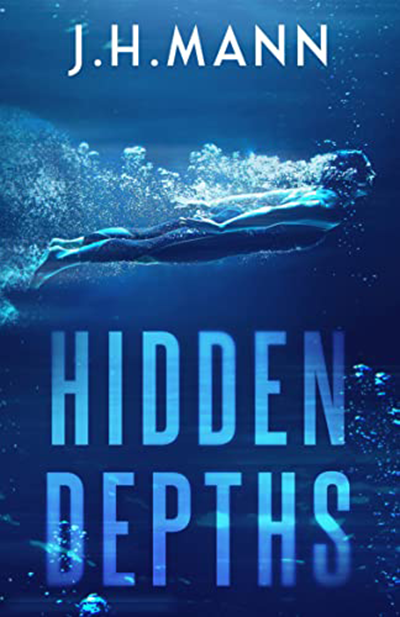 Hidden Depths
Hidden Depths
An unappreciated middle manager comes up with a risky scheme to cover her tracks in an embezzlement scandal in Hidden Depths, J.H. Mann's crime thriller set on the Cornwall coast.
Reminiscent of Ruth Ware's mystery novels, Hidden Depths features an anti-heroine trapped by a combination of self-serving impulses and economic desperation. Cathy Carlyon is a financial controller for the local office of a London-based telecom company. Though she knows more about the company's operations than anyone, she's being pushed out in favor of younger, flashier, male executives. Her surly teen son and unemployed, depressed husband offer no affirmation either.
A reckless affair with a male coworker provides the only bright spot in her life, until he sweet-talks her into helping him steal from their employer. Then he mysteriously vanishes, possibly murdered by their co-conspirators. Left holding the bag, Cathy, a long-distance swimmer, resolves to fake her own drowning and swim 28 miles across the cold North Atlantic to start again under a new identity.
Ruthless and self-pitying, Cathy is not a likeable heroine, but I found myself rooting for her more and more, because everyone around her is even more awful. Considering how her firm discriminated against her because of her age, gender, and lack of brown-nosing, I wanted her to get away with the cash.
Her two redeeming qualities are her devotion to her mother, suffering from dementia in the best nursing home that money can buy, and her deep attunement to the natural world. Like Cathy, Cornwall is not here to make friends. The landscape is austere and sometimes perilous, but also sublime. Its indifferent vastness puts her egotistical concerns in perspective. These descriptive passages contain the novel's best and most memorable writing.
All the characters' motivations were plausible, and the plot contained surprises without being too convoluted. The writing started out somewhat flat, with some clichéd metaphors, but improved as Cathy's narration turned to the subjects that gave her personality more depth—swimming and Cornwall. The other characters were rather two-dimensional with few positive features. It's challenging for readers to stay committed to a narrator with a sour outlook on life. Giving Cathy one or two people she respected, to say good things about, would have lightened things up.
The book design was professional, with no obvious typos, but numerous pages had streaky uneven lines of text, as when you move a page too soon before the photocopier has finished imaging it. The cover was excellent, in attractive shades of deep blue, with an illustration of a woman swimming underwater. The title was in large block capitals in a font that communicated the genre well. I would have edited down the back cover text so that there'd be room to use a larger font, since white type on dark blue is already hard to read.
I don't care for the trend of novels in present tense, but the enigmatic ending shows why the events had to be narrated as they occurred, rather than in hindsight. The unresolved questions about Cathy's fate make readers think about what they want to have happened, and what that says about their own moral compass.









